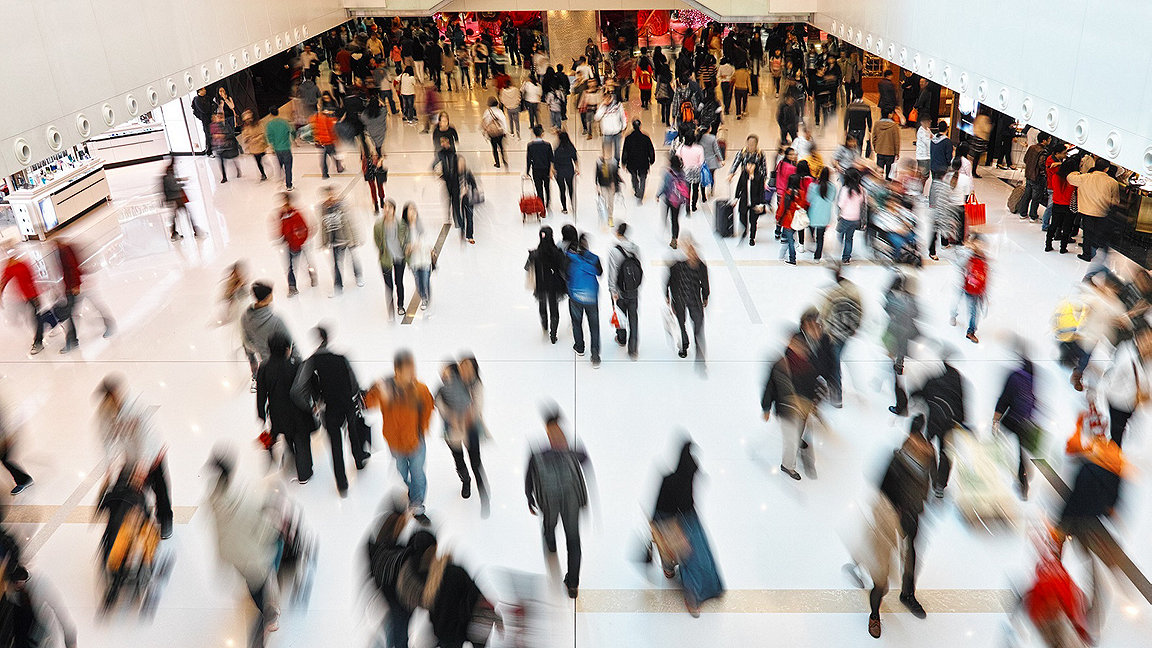
When tourism from mainland China – long a cornerstone of retail demand in Hong Kong – plummeted earlier this year, and then came to a virtual halt as borders were closed, retail sales fell to their lowest level in a decade at HK$238.935m in January-September 2020.
Consequently, vacancy rates in the traditional core shopping districts have climbed to record highs - 13.2%, 16.9%, 16.7% and 23.6% in tier-1 high streets in Causeway Bay, Central, Tsim Sha Tsui and Mongkok respectively, driving rents down sharply to HK$894, HK$964, HK$394 and HK$335 per sq.ft. saleable area in Causeway Bay, Central, Tsim Sha Tsui and Mongkok respectively, which are 62.9-77.6% drop from the peak in Q4 2013. They are likely to sink by 30–40% in the next year alone in these areas, to levels not seen since 2006/07, and the market has not even hit rock bottom yet.
Prime addresses such as Russell Street in Causeway Bay and Canton Road in Tsim Sha Tsui, once among the world's priciest shopping strips, have lost their lustre, with units that once housed luxury boutiques and high-end cosmetic brands now sitting empty. Most luxury retailers have no immediate plans to leave Hong Kong, but have focused instead on cautiously evaluating their long-term physical presence in the city. However, as the increasing number of vacancies shows, many have suffered enormously from the loss of tourist dollars over the past year and seen an economy that is unlikely to bottom out – either locally and globally – in the next 6–12 months.
High-street landlord concerns
It is not just retailers that have been pummeled by the pandemic. High-street landlords are also in turmoil, facing increasing vacancies and lost rent as retailers close stores. While the easy solution to fill the void would seem to be leasing the property out again quickly at a steep rental discount this could present further problems, as a lower rental could adversely affect the property's mortgage valuation.
Many landlords who have lost tenants in recent months have thus looked to lease to pop-up shops on a short-term basis, which allows them to generate some rental income without depreciating the value of their property. In order to lease their shops even more quickly, some landlords have also become more flexible about the types of tenant they are willing to accept. Many pop-up shops along high streets are being occupied by mass-market retailers, such as convenience stores, those selling mobile phone accessories, and even supermarkets. In the longer term, though, this may slowly transform the trade mix on high streets, making it more likely that remaining luxury retailers in the area will leave – and harder in the future to lure them back.
"High-street landlords are also in turmoil, facing increasing vacancies and lost rent as retailers close stores"
Safety in shopping malls
Retailers are taking lessons from the challenges of the past year, seeking to curb their losses and minimise future risks; many are consolidating the number of locations they sell from in Hong Kong. And in the shifting retail landscape, shopping malls are benefiting, as they are seen by many retailers to offer the relative safety of well-curated tenant mixes, strong marketing campaigns, and sophisticated leasing packages.
The support of marketing to stimulate foot traffic is a major advantage for shopping malls over street-front shops, particularly during the pandemic. In recent months, for example, several major mall operators have worked closely with their tenants in aggressively rolling out promotions. Featuring enticements such as shopping vouchers and free parking, these campaigns are proving successful at boosting sales and generating repeat purchases.
Many mall landlords have been more proactive in offering flexible lease renewal terms as well, including shorter lease durations and longer rent-free periods, as well as timely rental adjustments customised to each tenant's sales performance. Such measures have better positioned them to retain tenants.
The landlords of some well-managed malls are going even further by introducing pandemic clauses into lease contracts, which is viewed as a pragmatic approach to safeguard the interests of both sides in the event of future outbreaks. Such mechanisms provide clear guidelines on dealing with tenants during business disruptions and addressing gaps in existing insurance policies, which may not cover pandemic-related losses. By comparison, high-street landlords have far fewer resources in terms of management and marketing with which to support retailers through these challenging times. It is therefore not surprising that retailers are gravitating towards shopping malls.
It is clear that the social unrest last year and COVID-19 have together caused major disruptions for landlords and retailers in Hong Kong. And the current shifts being seen between high streets and shopping malls may alter the city's retail landscape in ways that long outlive the pandemic.
A version of this article originally appeared in the Institute of Shopping Centre Management Newsletter No51, Hong Kong, 2020
Related competencies include: Landlord and tenant, Leasing and letting, Strategic real estate consultancy
